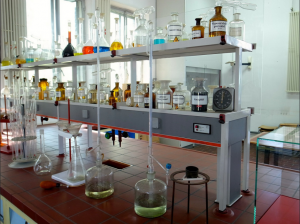What does a typical day look like for you?
It’s a question that comes up quite often in student appointments, particularly as they begin researching career opportunities and start assessing whether or not they envision themselves in a particular role. But, are students asking themselves this question?
I find that the students I work with are concerned about their work history, and fear that they lack a marketable skill set for the internship or job market because they don’t have a robust, multi-page snapshot of their professional experiences. While I understand their concerns, I find in a lot of cases, our students sell their skill sets a little bit short in the search. It takes some brainstorming for them to start reflecting on what they’re learning inside of the classroom and how it applies to the “real world.”
Students truly learn so much from the classroom experience. As they acquire relevant content knowledge and grow within their programs of study, they are quickly building a concrete skill set that is easily transferable to the job market.
One key to successfully articulating these skills involves translation. I led a workshop with Dr. Steve Iona, from the Physics & Astronomy Department, last quarter and he challenged our group to think creatively about this very topic. How can a student, who has completed a number of projects and assignments in the classroom, relate those activities back to a typical day on the job?
In my appointments with students who express concern about their work experience, I will often challenge them to tell me more about what they’re doing this quarter. I’ll often ask:
What courses are you taking this quarter, and what do the assignments look like?
What are some projects that you’ve completed that you’re particularly proud of, and why?
Are you taking a class with lab this term, and if so, what has your experience been like in the lab? Have you been working with a lab group? If so, how have you navigated the different working and learning styles of your team members? How have you taken their diverse perspectives and allowed them to influence (or not influence) your work?
Have you worked on a research project or paper? Did you present quantitative or qualitative data in written and visual formats? Did you have the chance to describe your research project to a lay audience (your peers, the community in a poster session)?
Are you solving sophisticated, multi-step problems in your courses?
As students start to tackle these questions, a lucrative and exciting skill set emerges that includes the ability to manage multiple projects, work effectively in a group setting, solve technical and complex problems, and navigate difficult conversations.
These skills are all great, but it can be difficult for students to decide where classroom examples might fit on a resume. After all, isn’t a resume designed to highlight professional experiences? What I often suggest to students is to first generate a working list of transferable skills and related classroom experiences, and then creatively relate aspects of these activities back to the resume. Listing relevant projects and coursework is a great place to start.
Some of these experiences might be better conveyed in the interview, and that is also great! The resume, cover letter, and application stage is not the final step; the ability to weave classroom skills into interview answers is another key to success in the internship and job hunt. Be sure to reflect on how to aid your students in capitalizing on the skills they use in lecture halls and labs in every step of the internship or job search.
So, what does a typical day look like for you?

